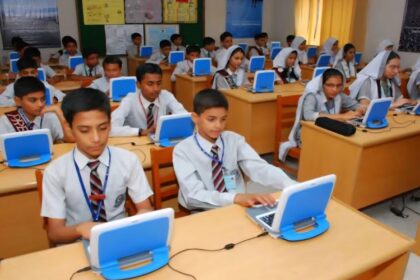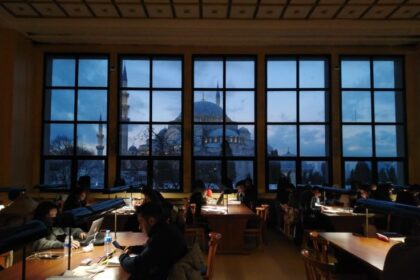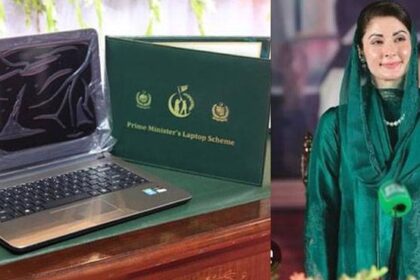Australia has revised the visa fee for international students, which is likely to dent the hopes of many Pakistani students planning on pursuing higher education there.
Previously, the fee for the student visa was A$710, but from 1 July 2024, international students will pay A$1,600 for the same. For the Australian government, this initiative is in line with their broader strategy to control migration to ensure sustainability.
Another important aspect of this policy is that individuals who are already in Australia on visit visas or those possessing temporary graduate visas cannot apply for student visas while they are still in the country.
According to the Australian Department of Home Affairs, accompanying applicants over the age of 18 would be charged A$1,445, whereas those under the age of 18 would be charged A$390.
These policy decisions are likely to create hurdles for Pakistani students, who move to Australia in the hopes of finding better employment opportunities, and the chance of securing a permanent residence.
Currently, many Pakistani students are pursuing education in Australia, but these measures are poised to make many families reconsider their options, considering how they struggle to arrange finances for studies abroad.
There is another dimension to this. Many individuals in developing countries view developed states with high visa fees with skepticism. The rejection rate of student visas during 2024 remained high, prompting concerns among many individuals as they evaluated Australia as an option for their higher education needs.
Leaving Home
Pakistani students flock to other states, including renowned Western nations, in hopes of a better future. Many families spend their entire savings on sponsoring the education of their children. While the falling value of the Pakistani Rupee is making it harder for these families to invest in their children’s future, it also makes the investment more lucrative. The more the difference between the two currencies is, the more the family receives.
However, for the State of Pakistan, the other side of the picture is gloomy. Untapped talent moves abroad and contributes to the development of another country. The same talent could have done much for the country.
But, another perspective on the same matter treats the issue differently. According to this viewpoint, those who pursue higher education in developed states tend to bring back a wealth of knowledge and skills polished through diverse experiences. These, in turn, help them contribute to the betterment of their homeland in a much better fashion.
Staying Back
Those who stay back do so for a number of reasons, including the absence of financial means to move abroad and the desire to grow in the local setup to contribute to the country from within. Those who pursue their education here tend to navigate within the local industries and forge a network here.
Proponents of staying back to help the country develop from within argue that not only does it save a lot of money, but it also allows people to fix things while operating within the system. They believe that those who leave the system abandon it, whereas those who operate within it are the ones who may be able to address emerging issues.
Moreover, there is a discourse surrounding the indigenous development of many products and reducing reliance on foreign goods. Many individuals believe that the key to this lies in controlling brain drain and utilising talented resources for the country’s progress.
Comparative Analysis
Pakistan’s education system is in shambles, but fully agreeing with one side is problematic. One cannot put their entire weight on either those wishing to leave the country for a better future or those who wish to stay behind.
Many in Pakistan believe that the country needs to make the best use of both cases. As far as those who move abroad are concerned, they believe that the country needs to incentivise their return and provide facilities to compensate for the lifestyle they forgo in their country of residence.
Many others believe that the country needs to build institutions that can fully utilise these individuals’s talents. It is in these institutions that knowledge is shared, and the emerging generations learn from the experiences and knowledge of their predecessors.
Moreover, they also believe that the country needs to develop plans for local education enhancement with the help of these individuals.
As far as those who stay behind are concerned, people believe that they can help the country evolve by addressing emerging issues as they come. This includes providing constructive feedback to improve the quality of education, joining educational services to enhance training imparted to the younger generation, and engaging with one another to develop a common civic sense among the populace.
Moreover, many people believe that those who are talented enough to tackle challenging roles must prioritise joining the bureaucracy and other government institutions to not only enhance the efficiency of those departments but to also improve the general service delivery of the government.
A hybrid approach comprising both sides of the picture can perhaps be the best course of action in these circumstances.
Popular Destinations
Pakistani students generally prefer English-speaking states, but recently the incentives offered by European states have persuaded many individuals to prefer them over the others. However, despite this, Australia still remains a popular destination for Pakistani students. Alongside, Europe, China, and Central Asia, Australia contains the most international students from Pakistan.
It remains to be seen whether the new visa policy will dissuade Pakistani students from opting for Australia. There is a possibility that people might skip Australia over increased costs. However, there is also the possibility of better migration control allowing for smoother operations in the future, and the people opting for Australia due to this reason.
















